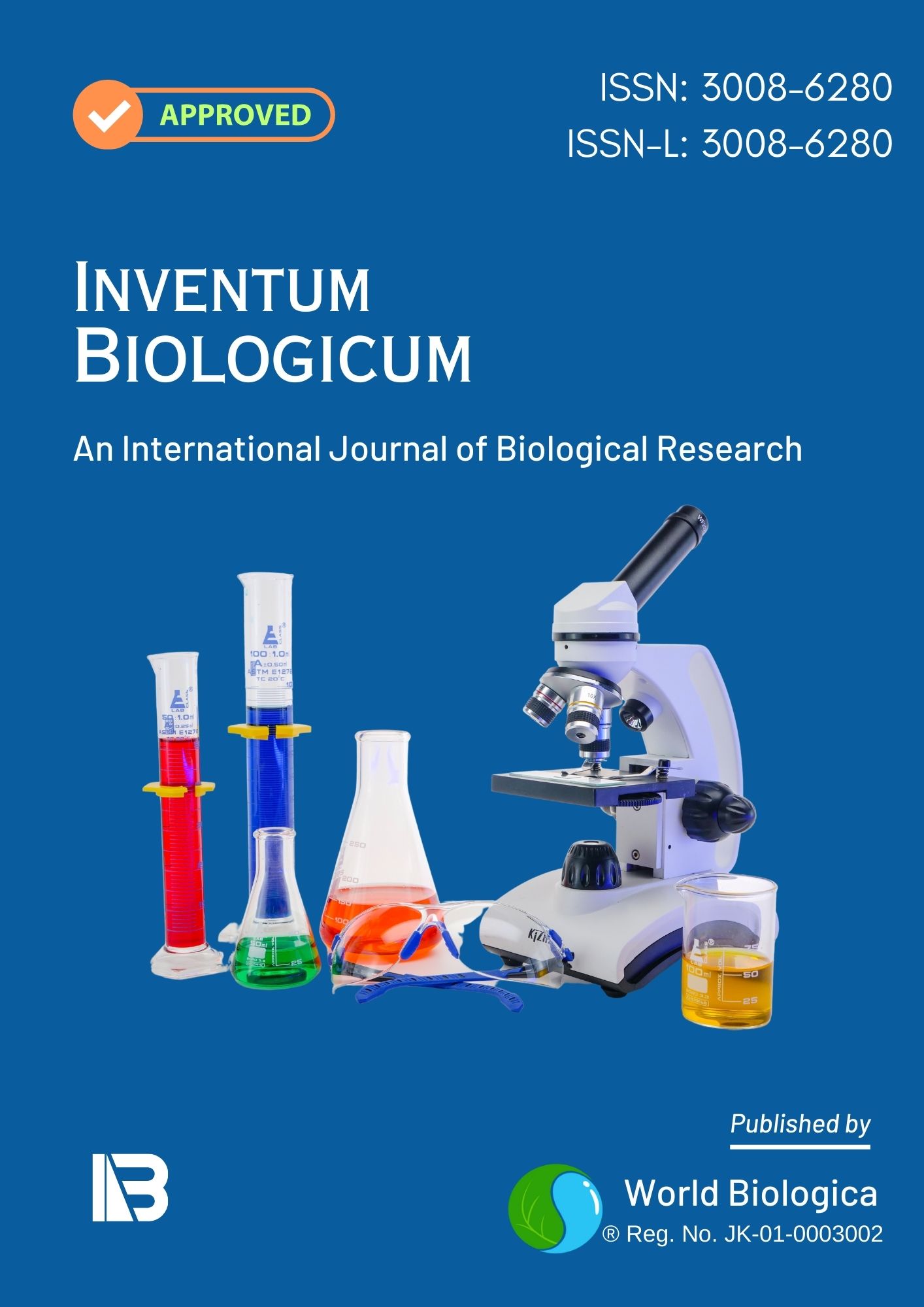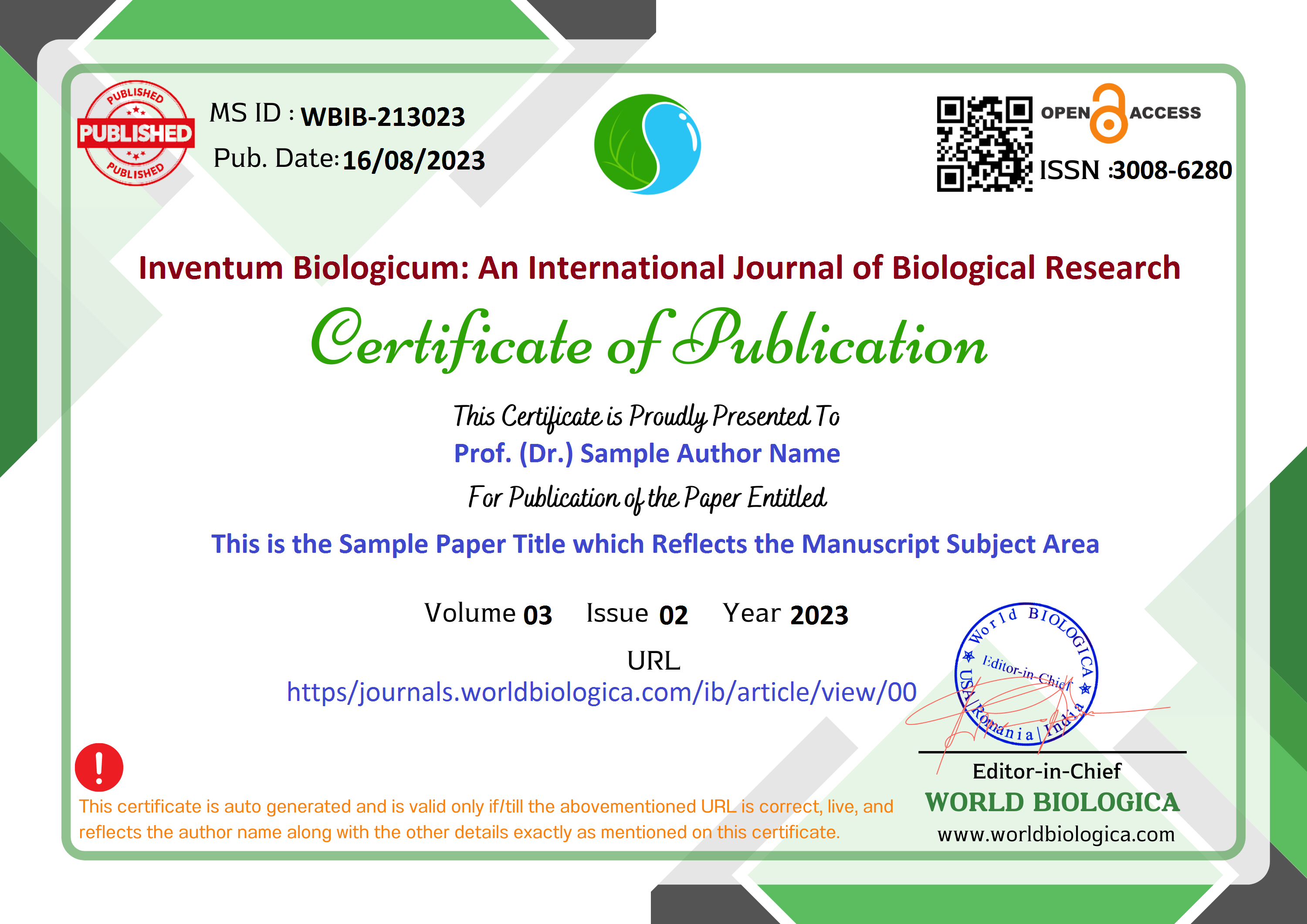Awareness towards Impact of Junk Food Wrappers on Environment
A Case Study of Jammu Region
Keywords:
Junk food wrappers, Environment, Disposal methods, BehaviorsAbstract
The consumption of junk food has increased in recent years, leading to a significant impact on the environment. This research paper presents a case study conducted in Jammu, India, to explore the attitudes and behaviors of individuals towards junk food wrappers and their impact on the environment. The survey targeted individuals aged between 10 and 40 years and received 100 responses. The findings reveal that a majority of participants were aware of the harmful impact of junk food wrappers on the environment and believed that the government should take more action to address the issue. Concern for the environment and personal responsibility were identified as significant motivators for appropriate disposal of junk food wrappers. The survey also highlighted the importance of government regulations and increasing public awareness to encourage the use of environmentally friendly packaging in the fast-food industry. The results of this study can guide policymakers, fast-food companies, and environmental organizations in developing effective strategies to mitigate the environmental impact of junk food wrappers.
Downloads
References
Bhaskar, R. (2012). Junk food: impact on health. Journal of Drug Delivery and Therapeutics, 2(3), 50-59.
Bohara, S. S., Kanchan, T., Bhatt, L. D., Dhami, S. S., & Wagle, S. (2021). Determinants of junk food consumption among adolescents in Pokhara valley, Nepal. Nutrition and Sustainable Diets journal Frontiers in Nutrition, 8(1), 1-9.
Debeaufort, F. (2021). Papers and Boards. Packaging Materials and Processing for Food, Pharmaceuticals and Cosmetics, 19-47.
Deshwal, G. K., & Panjagari, N. R. (2020). Review on metal packaging: Materials, forms, food applications, safety and recyclability. Journal of food science and technology, 57, 2377-2392.
Kubowicz, S., & Booth, A. M. (2017). Biodegradability of plastics: challenges and misconceptions.
Kumar, R., Sharma, P., Verma, A., Jha, P. K., Singh, P., Gupta, P. K., .. & Prasad, P. V. (2021). Effect of physical characteristics and hydrodynamic conditions on transport and deposition of microplastics in riverine ecosystem. Water, 13(19), 2710.
Marsh, K., & Bugusu, B. (2007). Food packaging—roles, materials, and environmental issues. Journal of food science, 72(3), R39-R55.
Namara, J. R, Green, J. P. (1991). Decreasing junk-food consumption through the use of self-management procedures: A case study. Psychol Rep (69), 19-22.
Ncube, L.K., Ude, A. U., Ogunmuyiwa, E. N., Zulkifi, R., & Beas, I. N. (2020). Environmental impact of food packaging materials: A review of contemporary development from conventional plastics to polylactic acid based materials. Materials,, 13, 2-24.
Plastic Oceans International (2020). The Facts. Retrieved May 7, 2023, from https://plasticoceans.org/the-facts/
Sheavly, S. B., & Register, K. M. (2007). Marine debris & plastics: environmental concerns, sources, impacts and solutions. Journal of Polymers and the Environment, 15, 301-305.
Thakur, A., Kumari, S., Sinai Borker, S., Prashant, S. P., Kumar, A., & Kumar, R. (2021). Solid waste management in Indian Himalayan region: current scenario, resource recovery, and way forward for sustainable development. Frontiers in Energy Research, 9, 609229.
Thiagamani, S. M. K., Krishnasamy, S., & Siengchin, S. (2019). Challenges of biodegradable polymers: An environmental perspective. Applied Science and Engineering Progress, 12(3), 149-149.
Winkler, I., & Zharykov, G. (2011). Solid municipal wastes in Ukraine: A case study of environmental threats and management problems of the Chernivtsi Dump area. In Understanding and managing threats to the environment in South Eastern Europe (pp. 265-277). Springer Netherlands.
Downloads
-
Download PDF
 Abstract Views: 559,
Abstract Views: 559,  Download PDF: 131
Download PDF: 131
Published
How to Cite
Issue
Section
License
Copyright (c) 2023 Inventum Biologicum: An International Journal of Biological Research

This work is licensed under a Creative Commons Attribution-NonCommercial-NoDerivatives 4.0 International License.


















